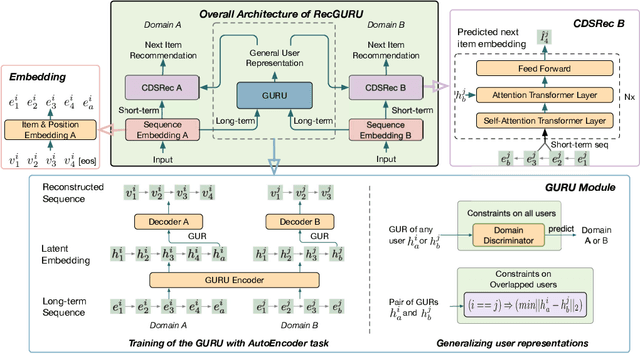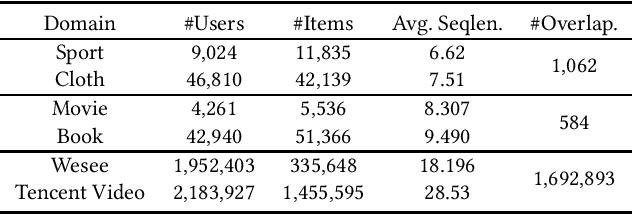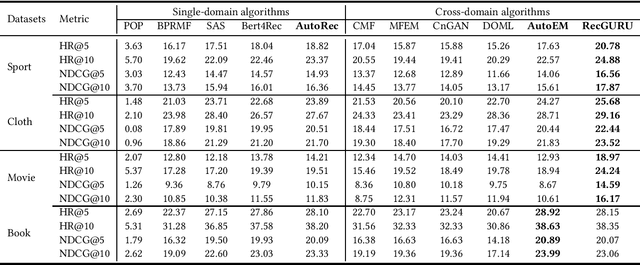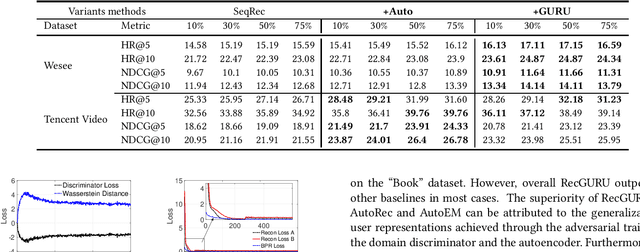Guoqiang Shu
One for All, All for One: Learning and Transferring User Embeddings for Cross-Domain Recommendation
Nov 22, 2022Abstract:Cross-domain recommendation is an important method to improve recommender system performance, especially when observations in target domains are sparse. However, most existing techniques focus on single-target or dual-target cross-domain recommendation (CDR) and are hard to be generalized to CDR with multiple target domains. In addition, the negative transfer problem is prevalent in CDR, where the recommendation performance in a target domain may not always be enhanced by knowledge learned from a source domain, especially when the source domain has sparse data. In this study, we propose CAT-ART, a multi-target CDR method that learns to improve recommendations in all participating domains through representation learning and embedding transfer. Our method consists of two parts: a self-supervised Contrastive AuToencoder (CAT) framework to generate global user embeddings based on information from all participating domains, and an Attention-based Representation Transfer (ART) framework which transfers domain-specific user embeddings from other domains to assist with target domain recommendation. CAT-ART boosts the recommendation performance in any target domain through the combined use of the learned global user representation and knowledge transferred from other domains, in addition to the original user embedding in the target domain. We conducted extensive experiments on a collected real-world CDR dataset spanning 5 domains and involving a million users. Experimental results demonstrate the superiority of the proposed method over a range of prior arts. We further conducted ablation studies to verify the effectiveness of the proposed components. Our collected dataset will be open-sourced to facilitate future research in the field of multi-domain recommender systems and user modeling.
RecGURU: Adversarial Learning of Generalized User Representations for Cross-Domain Recommendation
Nov 19, 2021



Abstract:Cross-domain recommendation can help alleviate the data sparsity issue in traditional sequential recommender systems. In this paper, we propose the RecGURU algorithm framework to generate a Generalized User Representation (GUR) incorporating user information across domains in sequential recommendation, even when there is minimum or no common users in the two domains. We propose a self-attentive autoencoder to derive latent user representations, and a domain discriminator, which aims to predict the origin domain of a generated latent representation. We propose a novel adversarial learning method to train the two modules to unify user embeddings generated from different domains into a single global GUR for each user. The learned GUR captures the overall preferences and characteristics of a user and thus can be used to augment the behavior data and improve recommendations in any single domain in which the user is involved. Extensive experiments have been conducted on two public cross-domain recommendation datasets as well as a large dataset collected from real-world applications. The results demonstrate that RecGURU boosts performance and outperforms various state-of-the-art sequential recommendation and cross-domain recommendation methods. The collected data will be released to facilitate future research.
 Add to Chrome
Add to Chrome Add to Firefox
Add to Firefox Add to Edge
Add to Edge